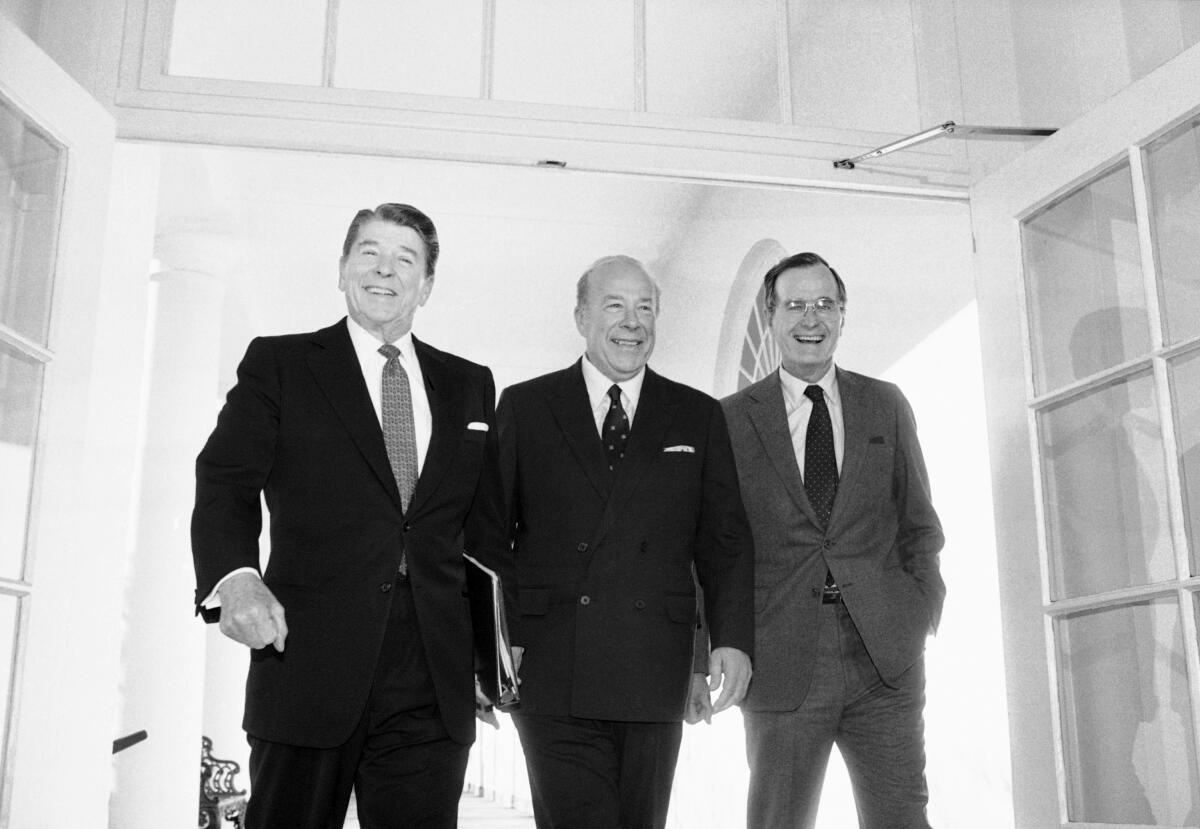Letters to the Editor: Did George Shultz keep Reagan’s hawks at bay during the Cold War?

- Share via
To the editor: I write to thank you for Doyle McManus’s insightful piece on the late George Shultz, much of which focused on Shultz’s tenure as President Reagan’s secretary of state.
As an American historian, I too think that Shultz deserves high marks for his stewardship of our foreign policy at the end of the Cold War. I was particularly struck by McManus’ mention of the alliance between the secretary and the first lady, Nancy Reagan.
I have long speculated that her desire for her husband’s legacy to be a peaceful one must have helped the president resist the influence of the hawks in his administration and thus reinforced the sway of his secretary of state.
Glenna Matthews, Laguna Beach
..
To the editor: Any of Shultz’s achievements could guarantee him a place in history. I will remember him for his concern for climate change and the strategy he suggested for addressing it.
Shultz and economist Gary Becker advocated a revenue-neutral carbon tax in a 2013 Wall Street Journal op-ed article, a heretical idea at the time. Later, he and a group of conservative leaders in business, economics and politics organized the Climate Leadership Council, which in 2017 published the paper “The Conservative Case for Carbon Dividends.”
In so doing, Shultz and his conservative allies tried to make climate change a nonpartisan issue.
Today, with the science- and environment-friendly Biden administration, the consequences of climate change increasingly apparent, most Americans “concerned” about the problem and with Congress searching for solutions, Shultz’s most important legacy may be to have given his fellow conservatives justification not to fear a strategy widely considered a necessary component of any climate policy: a fee for carbon pollution that is returned to taxpayers, hastening the transition to green energy.
Carol Steinhart, Madison, Wis.
More to Read
A cure for the common opinion
Get thought-provoking perspectives with our weekly newsletter.
You may occasionally receive promotional content from the Los Angeles Times.









